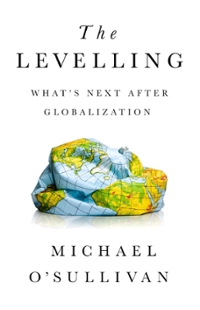Question
Wage Rates in competitive markets are determined by the forces of supply and demand. In addition, the supply and demand for labor and wages are
Wage Rates in competitive markets are determined by the forces of supply and demand. In addition, the supply and demand for labor and wages are also influenced by four factors:
- FACTOR 1
The first is human capital, a worker's level of knowledge and skill. Unskilled workers have little if any training and receive low wages. Semi-skilled workers, such as clerical workers, have some special training. Electricians and other skilled workers have more training still. Professional workers have the greatest amount of human capital. Workers with the highest levels of human capital tend to receive the highest wages.
- FACTOR 2
A second factor is working conditions. Higher wages may be offered to attract workers to dangerous or unpleasant jobs. Jobs may have conditions that make up for low wages. For example, a worker might accept a lower-paying job close to home to avoid a long commute.
- FACTOR 3
Discrimination, based on race, ethnicity, gender, or other factors, may also affect wages. Women and minorities sometimes encounter what is known as 'the glass ceiling,' artificial barriers that keep them from being promoted.
- FACTOR 4
Finally, the government affects wage rates by setting the minimum wage an employer may pay for an hour of work.
Human Capital and Productivity
Studies have shown that companies that spend 3.5-4% of their budgets on investing in human capital, rather than the more typical 2%, come out in the top 5-10% of best performing companies. Further, as global competitors are increasingly efficient in manufacturing, companies that can distinguish themselves by their highly trained and educated workforce retain the competitive edge.
ANSWER CHOICES:
a. professional workers
b. working conditions
c. not very important, unskilled workers, skilled workers, glass floor
d. very important
e. they have a little if anything training and are are easy to replace
f. supply and demand
g. minimum wage
h. discrimination
QUESTIONS:
1. What forces determine wage rates in competitive markets?
2. Why do unskilled workers generally receive the lowest wages and typically get laid-off first during a recession?
3. Which worker has the highest amount of human capital?
4. Which wage rate factor pays individuals more when a job is dangerous or unpleasant?
5. Which wage rate factor talks about artificial barriers that keep workers from being promoted?
6.Which wage rate factor determines the lowest rate an employer may pay for an hour of work?
7.Based upon what you have read, how important will investing in yourself be to your future?
Step by Step Solution
There are 3 Steps involved in it
Step: 1

Get Instant Access to Expert-Tailored Solutions
See step-by-step solutions with expert insights and AI powered tools for academic success
Step: 2

Step: 3

Ace Your Homework with AI
Get the answers you need in no time with our AI-driven, step-by-step assistance
Get Started


